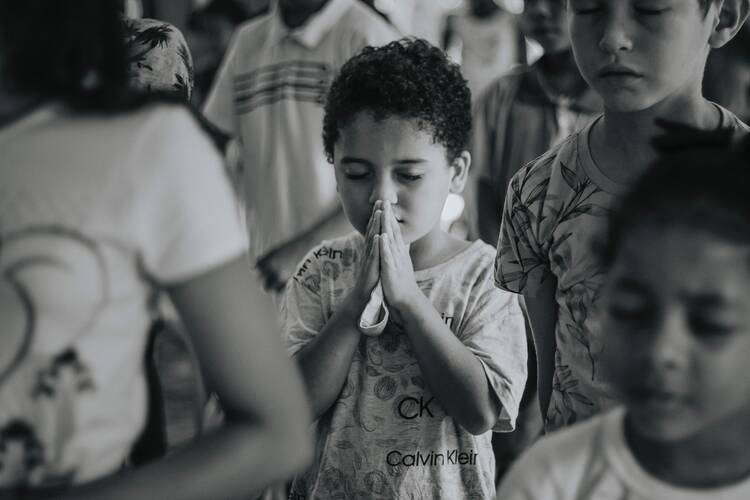Call out to God for help when you need it—and then never stop saying thank you
The Gospel for the Twenty-eighth Sunday in Ordinary Time focuses on a group of people with skin disease and how they seek out and respond to help and healing. The story of their encounter with Jesus offers many insights about how we view people in our community, how we pray and how we express thanksgiving.
“One of them, realizing he had been healed, returned, glorifying God in a loud voice” (Lk 17:15).
What type of healing do you need in your life?
In what ways do you demonstrate gratitude?
How do you treat people who are different from you?
Jesus encounters ten lepers who raise their voices at the sight of Jesus, saying: “Jesus, Master! Have pity on us!” Jesus is moved by their pleas and instructs them to go to the priests to show that they had been healed of their conditions. The people’s bold willingness to approach Jesus initiates their own healing, which Jesus performs, although the act of healing is not fully narrated. That Jesus is responding to their cries for help reminds us of the power of our own prayer in imploring God for assistance.
One of the people who had been healed responds by praying, worshiping and thanking Jesus, and that reaction is a model for how to respond to divine presence and action in our lives. The person’s demonstration is not subtle, as he glorifies God loudly and falls prostrate in his presence. This reaction is a reminder that we must acknowledge the ways that God has and continues to impact our lives.
The Gospel reminds us that it is putting the teachings of the kingdom into practice, not only identifying with them, that is the true measure of discipleship.
In the case of this leper, his healing was dramatic and transformative which likely influenced his bold and expressive reaction. Not only was his skin condition healed, but through that healing he is now able to interact in society. Depending on the length and severity of his condition, this could be an entirely new experience or a restoration to being included once again.
Imagine living in a state in which everyone avoids you. A person with a leprous condition was so isolated from society that the expression “to be leper” is unfortunately used to say that someone is rejected, outcast and ostracized. Using a medical condition metaphorically to represent suffering is harmful to people who live with such conditions. It should be avoided as a form of ableism, especially as these expressions often frame differences as negative attributes. Yet that expression helps us to remember both the physical and social impact of Jesus’ action, and the person’s expression of gratitude reveals the magnitude of this healing.
The Gospel is explicit in saying that the one who returned was a Samaritan, which makes him isolated on multiple levels, by his physical ailments and by his theological and cultural differences. The Samaritan is lauded as the model of the correct way to respond in this situation. We encounter a similar idea in the Parable of the Good Samaritan in which the Samaritan, rather than the priest and Levite, shows mercy by offering care to someone in need, just as Jesus shows mercy in today’s Gospel. By connecting the full acceptance of the kingdom with those who are cultural and religious outsiders, the Gospel reminds us that it is putting the teachings of the kingdom into practice, not only identifying with them, that is the true measure of discipleship.
As we reflect on this powerful reading, we are reminded to call out for help when in need and to be intentional in expressing our thanks. Likewise, we are encouraged to look for examples and models for the faith who might be outside of our own communities and traditions








